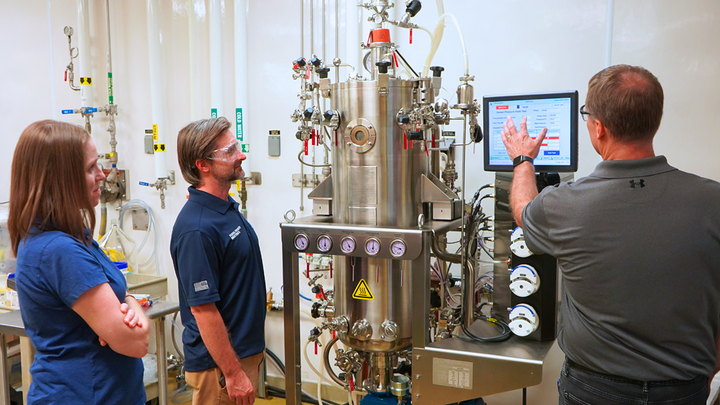The Bachelor of Science in Environmental Engineering program at the University of Nebraska–Lincoln College of Engineering has been officially accredited by the Accreditation Board for Engineering and Technology (ABET).
ABET accreditation is considered the gold standard for engineering programs worldwide, ensuring that graduates meet the highest quality standards recognized by employers, graduate schools, and professional licensing boards. This accreditation affirms that Nebraska’s Environmental Engineering program prepares students with the knowledge, skills, and experiences necessary to address today’s most pressing environmental challenges—from water and air quality to sustainable infrastructure and emerging contaminants.
“This is a tremendous milestone for our department and college,” said Shannon Bartelt-Hunt, chair of the Department of Civil and Environmental Engineering. “ABET accreditation validates the hard work of our faculty, staff and students, and ensures that our graduates will continue to be nationally and globally competitive as they enter the workforce or pursue advanced degrees. This degree program helps meet a significant workforce need for the state of Nebraska.”
Launched in 2022, the bachelor’s degree program was designed to meet the growing demand for environmental engineers who can develop innovative, sustainable solutions to protect human and ecological health, Bartelt-Hunt said. The program emphasizes hands-on learning, interdisciplinary collaboration, and professional readiness—key elements that align with ABET’s rigorous standards.
“Environmental engineering is an important growth area for the College of Engineering” said Lance C. Pérez, Fred Hunzeker dean of Engineering. “ABET accreditation for this program underscores our commitment to producing the next generation of leaders who will tackle environmental challenges facing Nebraska and globally.”
Bartelt-Hunt said graduates of the program are now assured that their degree meets the requirements for professional licensure and certification, further strengthening their career opportunities in industry, government, and academia.




